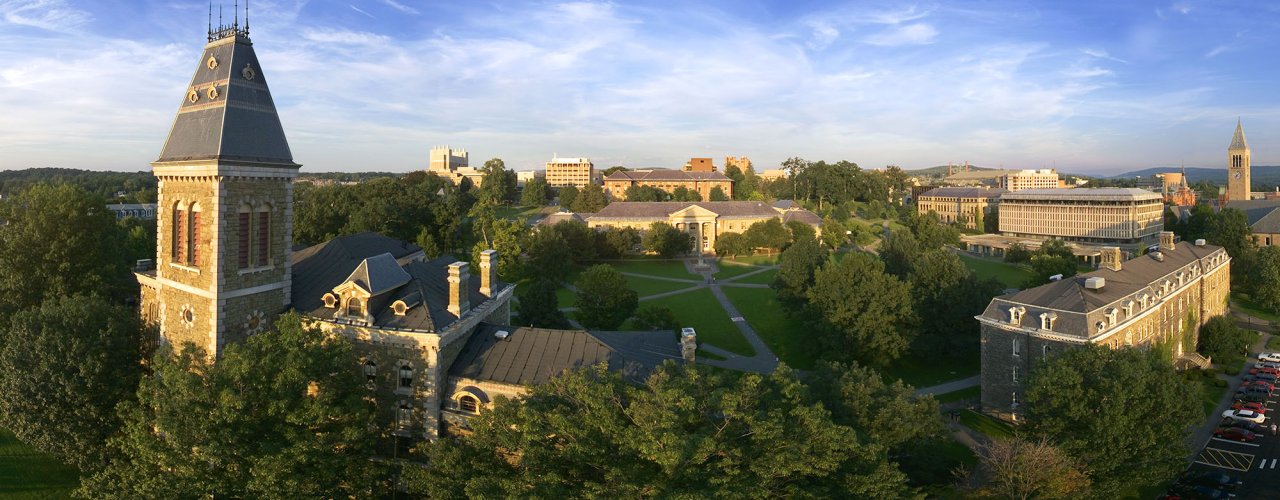Letter to the Secretary of State on Visa Regulations
The Honorable Antony J. Blinken
Secretary
U.S. Department of State
2201 C Street, NW
Washington, DC 20520
Dear Secretary Blinken,
On behalf of Cornell University, I am writing to call attention to a troubling series of recent visa denials that threatens the enrollment of international students at U.S. colleges and universities. As we emerge from the global pandemic, I recognize and appreciate the Department’s efforts, encouraged by Congress, to resume visa processing while protecting the health, safety, and security of our citizens. At the same time, I am concerned that consular officials are interpreting policies in an uneven and unpredictable manner that is creating tremendous uncertainty and confusion for international students and their U.S. universities.
Cornell University is a privately endowed research university and a partner of the State University of New York. As the federal land-grant institution in New York State, Cornell has a responsibility to make contributions in all fields of knowledge in a manner that prioritizes public engagement to help improve the quality of life in our state, the nation, and the world. Cornell has seven undergraduate colleges and four graduate and professional schools on the main campus in Ithaca, NY; three graduate and professional schools in New York City, including Weill Cornell Medicine and Cornell Tech; an agricultural research campus in Geneva, NY; and a medical school in Doha, Qatar. The university enrolls approximately 25,300 students across all campuses, with students from every state and more than 120 countries. Of the total student population, international students comprise 24 percent, roughly 5,900 students. Of those 5,900 international students, 85 percent are graduate and professional students. Cornell also has approximately 1,200 exchange visitors on J-1 visas. These students and exchange visitors are central to our educational, research, and patient care missions. We count among our international graduates CEOs, diplomats, policymakers, leading scientists, and award-winning authors and artists.
From the very beginning, Ezra Cornell embraced a vision that Cornell would be a place where “any person can find instruction in any study.” We believe that international students and scholars are a critical part of that inclusive vision and essential to the makeup of a world-class university. By every measure – intellectually, economically, culturally – international students make U.S. universities stronger. Cornell’s students and faculty have always benefited from exposure to intercultural differences and the leadership opportunities that arise from global collaborations. This concept is not new to Cornell. In fact, Cornell created the nation’s first university office for international students in 1936, which, to this day, strives to build opportunities for students and faculty to discover, think, and act in concert with the world.
The United States has the strongest and most competitive higher education system in the world, attracting the top applicants from across the globe every year. If the U.S. is to remain competitive, we must continue to accept the best students from around the world. Cornell, like other universities, is grateful that U.S. embassies and consulates are prioritizing student visas as they reopen after the long COVID-related pause. I am concerned, however, that many proclamations issued by the previous administration to restrict international student access to the United States are still creating a highly charged and ambiguous educational environment for international students. In the last week alone, we have seen a noticeable number of student visas denied, particularly in China, because of unclear, localized interpretations of theMay 29, 2020 Proclamation or section 243(d) of the Immigration and Nationality Act.
Cornell respectfully requests that the Department give U.S. embassies and consulates clarifying guidance on the intended scope of relevant policies. A clear standard would prevent uneven and arbitrary interpretations that result in barring qualified students from traveling to the U.S. to begin or complete their education and research. Unless the Department narrows the entities included in Presidential Proclamation 10043, consular officials may implement the previous administration’s guidance in ways that are capricious, unclear, and excessive. Maintaining the flow of international students to the United States is necessary to both retaining our global preeminence and building stronger cultural and political bridges to the rest of the world. Better articulation of the rules around visas for international students will help us to achieve both of these goals. Thank you for your attention to my concerns.
Sincerely,
Dr. Wendy Wolford
Vice Provost for International Affairs
Robert A. and Ruth E. Polson Professor of Global Development
cc: New York Congressional delegation

